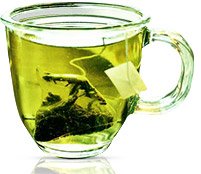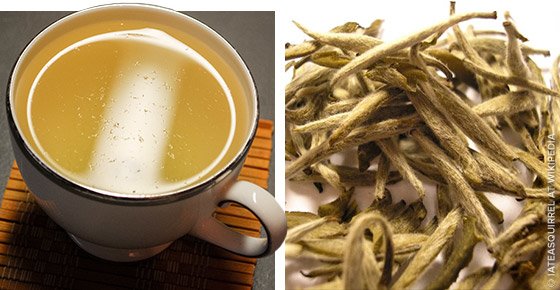
Tea can be a welcome break for buzzing coffee lovers. When your immune system is on its last leg, and you have already thrown back three coffees and three energy pills, why not complete your day with a cup of tea?
Asians have been enjoying the healthy benefits of drinking green tea for many centuries. Scientific research now suggests there might be something to the 4,000 years of folklore that has long claimed tea can be beneficial to your health.
Green Tea
Green tea has shown far greater antioxidant protection than the well-known polyphenols in vitamins such as C and E. Green tea is 6% more potent as an antioxidant than black tea.
Green tea is produced by lightly steaming the fresh-cut black tea leaf. With black tea, the leaves are oxidized, which destroys some of the antioxidant compounds that green tea has.
Studies indicate green tea consumption may be associated with a reduced risk of certain cancers of the gastrointestinal tract. Its antioxidant effects may also reduce the risk of other types of cancer, such as breast cancer and prostate cancer.
Benefits Include
Cholesterol
Drinking green tea may help maintain cholesterol levels already within a normal range, particularly "bad" (LDL) levels.
Blood Pressure
Research indicates that green tea may be beneficial to maintaining blood pressure already within the healthy range.

Blood Sugar
In recent studies, increased green tea consumption coincided with decreased blood glucose levels. Fewer spikes in blood sugar levels were also seen.
Viral and Bacterial Agents Lowered
Tea catechins are strong antibacterial and antiviral agents, which may support the body's immune function. People with influnza, diarrhea, or even tooth decay may benefit from tea catechins.
Calorie-Burning
Green tea should be used as part of a healthy diet, as it can play a role in controlling weight. Green tea works by increasing energy expenditure, and also has thermogenic properties which promote fat-burning.
White Tea
One of the big differences between green tea and white tea is in the processing. Green tea is exposed to high temperatures to remove the moisture and dry the leaf, while white tea is dried naturally using sunlight or lowered temperatures indoors, which preserves tea polyphenols.
White tea is especially potent, and has three times as many antioxidant polyphenols as green or black tea. As someone who weight trains, I have several cups of white tea a week.
White tea is more expensive because it is produced in a different way from all other teas. The leaves come from special bushes, and are then dried in the sun. Only certain leaves are selected. Some of the world's best known tea experts consider white tea to be even finer than green tea. True white tea only comes from the Da Bai Hao bush.

It is better to brew white tea at a cooler temperature instead of boiling water. There are different kinds of white tea. The more expensive the tea, the better grade of tea leaves used to produce the product. Yes, you get what you pay for!
White tea has a pleasant, mellow taste that is subtle and also sweet. It has a delightful aroma, and the leaf tea is very fruity.
Vitamins In Tea
-
Vitamin B1 (Thiamin): Helps build energy by converting energy from food. Promotes better appetite and digestion, and is also needed for growth and reproduction.
-
Vitamin B2 (Riboflavin): Promotes healthy skin, eyes, and energy metabolism.
-
Vitamin B6: Helps to release energy from food and enhances the metabolism of proteins.
-
Vitamin C (Ascorbic Acid): Heals wounds and mends fractures. Also fights some common types of viral and bacterial infections.
-
Vitamin K: Prevents blood clotting and helps build bone metabolism.
-
Carotene: Gets converted to Vitamin A upon digestion. Promotes good eyesight and healthy skin.
-
Folic Acid: Aids in red blood cell formation and gene formation.
Minerals In Tea
-
Manganese: Vital for growth and the body's development.
-
Potassium: Essential for maintaining normal heart rhythm.
-
Zinc: Essential for the development of reproductive organs and the healing of wounds.
-
Fluorine: Protects the teeth and strengthens the bones.
Polyphenols In Tea
-
Flavonoids and catechins are groups of polyphenolic compounds. They help fight against free radicals and act as antioxidants.
The Popularity Of Tea
The amount of tea consumed each day in Asian countries is typically three cups or more per day. It can be steeped for 3-15 minutes, depending on your preference. There are many good reasons to drink tea, and its virtues are now being recognized. Green tea is now extremely popular in Western countries as well. Give it a try, if you haven't already. And if you're already benefiting from green tea, share your story with us in the comments below!
